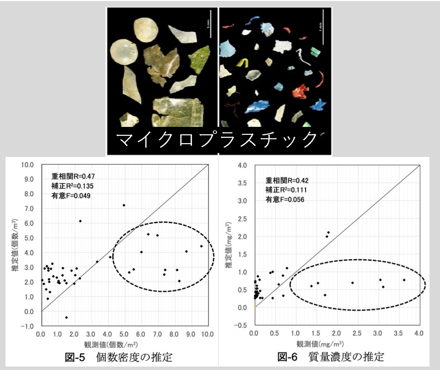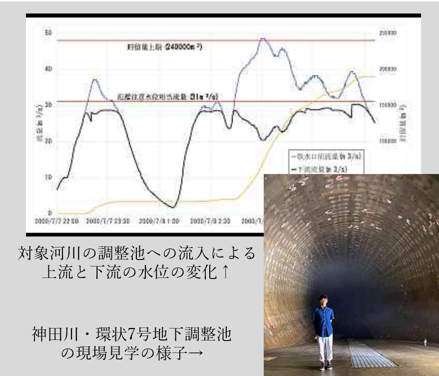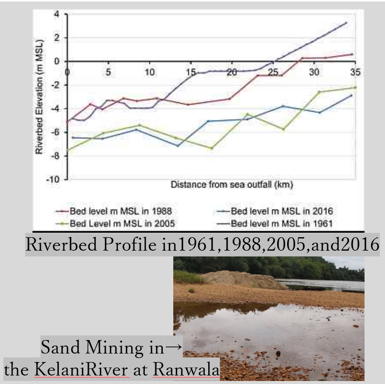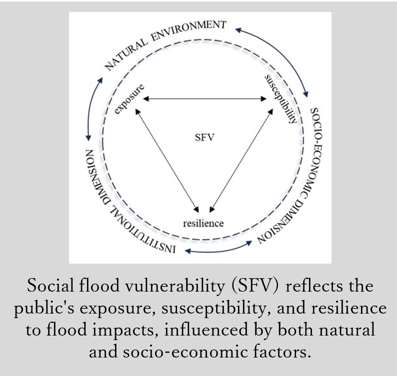

研究室について
東京都立大学 都市環境学部 都市基盤環境学科 河川・水文研究室には現在、今村能之教授、天口英雄助教、そして留学生2人・社会人ドクター2名を含めた15名の学生、客員の方5名が所属しています。 我が研究室では河川や流域を中心に水にかかわる幅広い分野を研究しています。 水と人々の歴史を背景に、人との関わり合いを通じて、 水による災害の予測・防止・軽減、人口変動や土地利用の影響や温暖化といった環境問題までも扱い、AI、VR、GIS、衛星リモートセンシングなどの技術を活用して、技術的な側面だけでなく、社会・経済・政策の面からも考えていきます。 Read More…

こんな研究してます!
社会経済指標等を用いた河川のマイクロプラスチック推定手法について
近年環境問題となっているマイクロプラスチックによる水域の汚染について、河川内に着目して研究を行っています。 国内における河川内のマイクロプラスチックの研究・観測が始められていますが,時間とコストがかかり多数の河川で観測することは容易ではありません. 海外などの研究成果も参照しながら,国内のマイクロプラスチック研究で得られた観測値と、その上流側の流域内の人口密度などの社会経済指標、 また流域面積や流量などの河川指標との関連性を調べ、どのようなものが河川内のマイクロプラスチックの要因となるのか、 国内河川のマイクロプラスチック量の推定について研究を進めています. Read More…

こんな研究してます!
都市中小河川における深層強化学習を用いた効率的な調節池ゲート操作について
環状七号地下調節池と調節池に流入する神田川、善福寺川、妙正寺川を対象として研究を行っています。 近年地球温暖化の影響によりゲリラ豪雨などの大雨による被害が増加しています。 そこで効率的に調節池の流入ゲートを稼働させ、増加した河川の水を流入させることで氾濫の発生を低減させるような流入ゲート操作の方法を検討しています。 現在、ゲート操作は人為的に行っていますが、この研究ではAI技術を用いた効率的なゲート操作に検討しています。 Read More…

こんな研究してます!
Impacts of riverine sand mining on the hydrology of the Kelani River Basin, Sri Lanka
The Kelani River is a main river in Sri Lanka that is subjected to riverbed lowering by 10 cm per year due to sand mining. Sand mining impacts adversely on sediment transport processes in the river system. The main objective of this study is to study sand mining’s impacts on streamflow and sediment transport in the Kelani River at the basin scale. As the first part of this study, a method will be proposed to determine sustainable mining amount and riverbed slope through a sediment budget approach. The second part includes developing a model to study sand mining impacts at the basin scale. This study would be the first assessment of the sand mining impacts of the Kelani River. Sand mining impacts at the basin scale are not studied much yet. Therefore, this study would lead to an integrated methodology for managing current and future sediment deficits in intensively mined rivers. Read More…

こんな研究してます!
Evaluating Social Vulnerability in Flood-Prone Urban Communities
The rapid growth in population and urban development, combined with climate change, has exacerbated flood risks in cities like Metro Manila. Even with several flood control initiatives, urban areas still face flooding during brief rainfalls. Current plans heavily emphasize structural solutions, often sidelining vulnerability analyses of local communities. This analysis is pivotal as it provides a scientific basis for decision-making, highlighting factors influencing urban community vulnerability. Many studies on social vulnerability focus primarily on systemic susceptibility, neglecting the direct impact of floods and the community's adaptive and recovery capacities. Furthermore, these studies typically overlook the evolving threats posed by climate change and continued urbanization. Addressing these shortcomings, our research aims to provide a holistic and dynamic assessment of flood-affected urban communities' social vulnerability using multi-attribute decision-making methods, offering insights for improved flood risk management and policy direction. Read More…